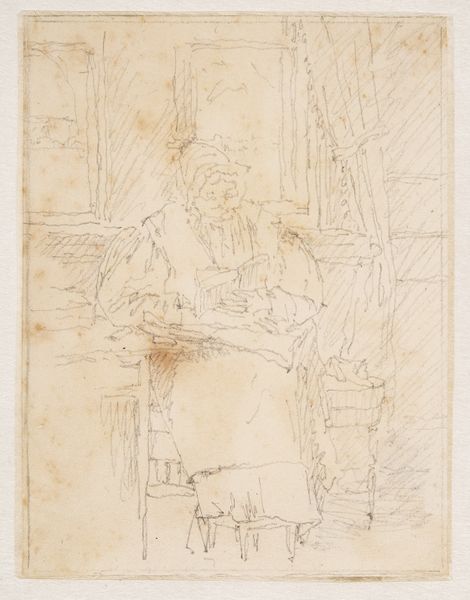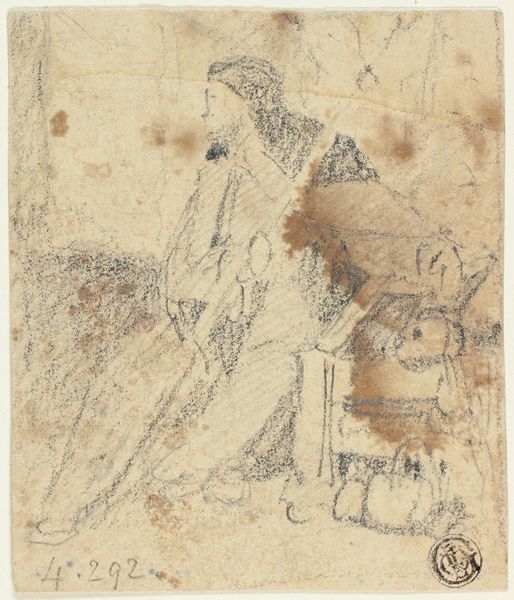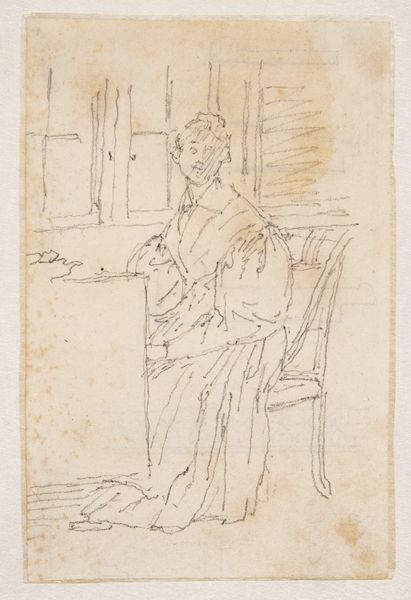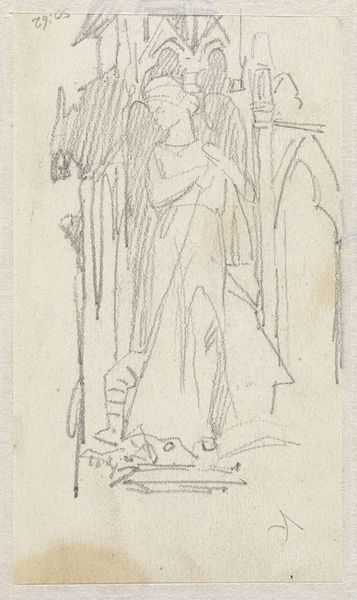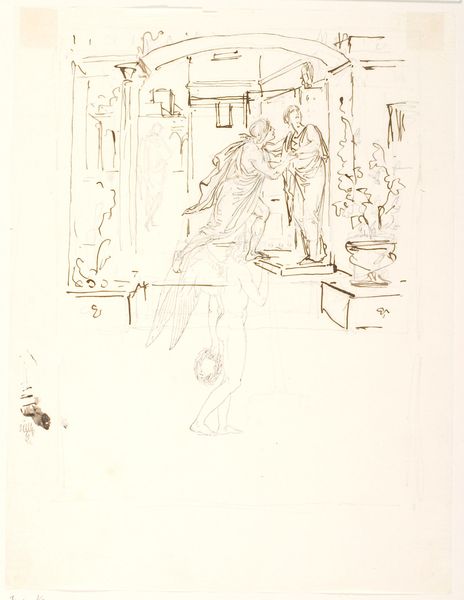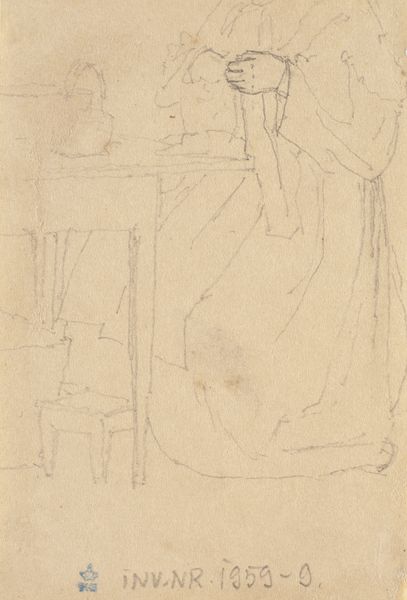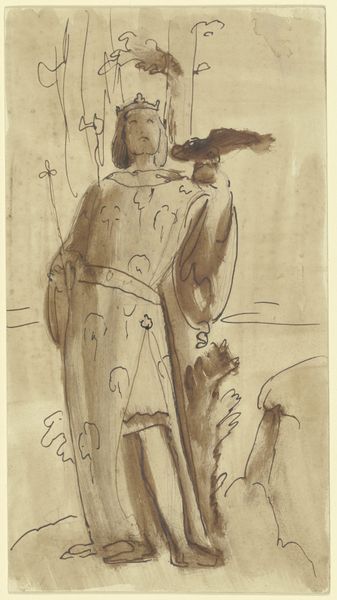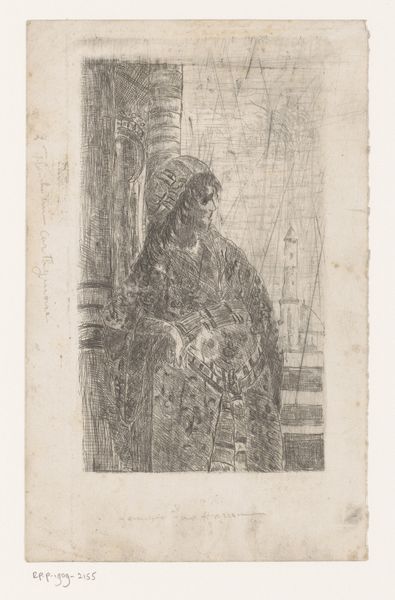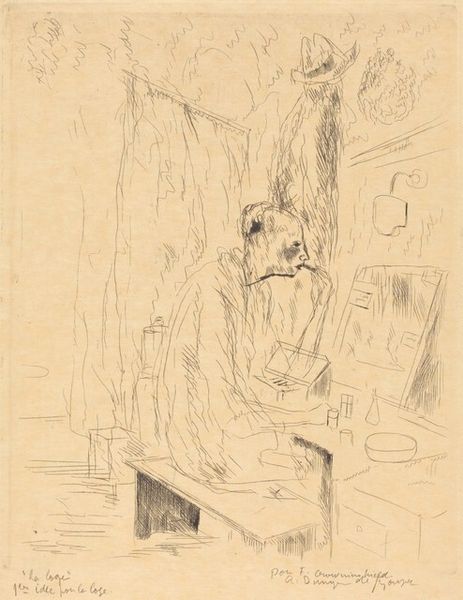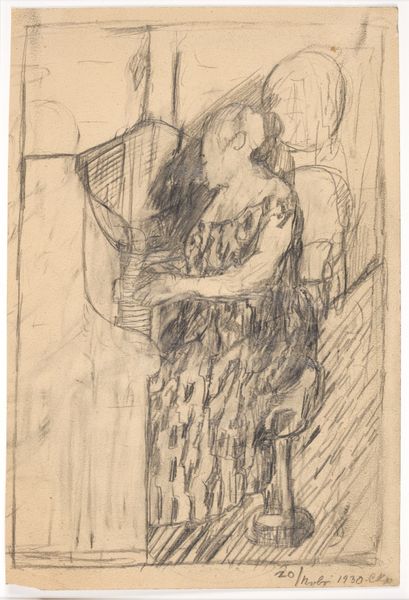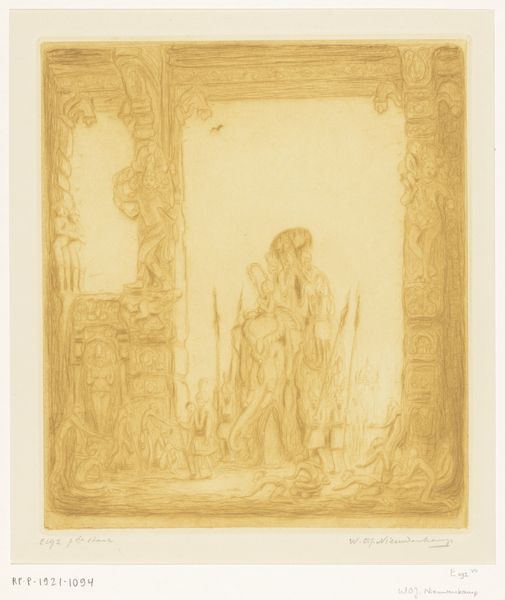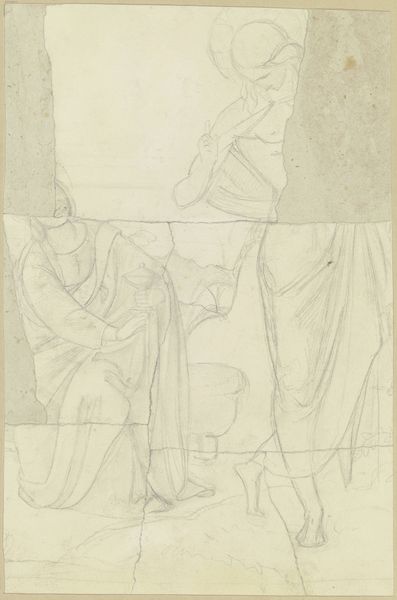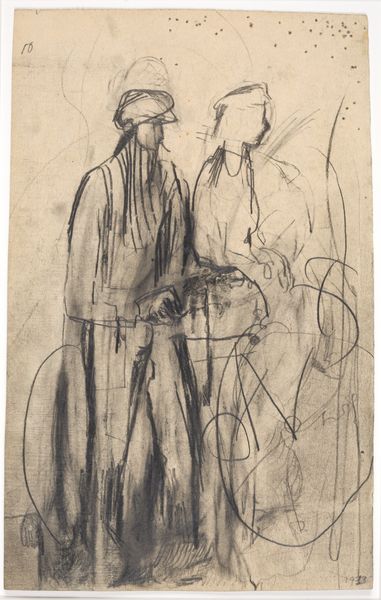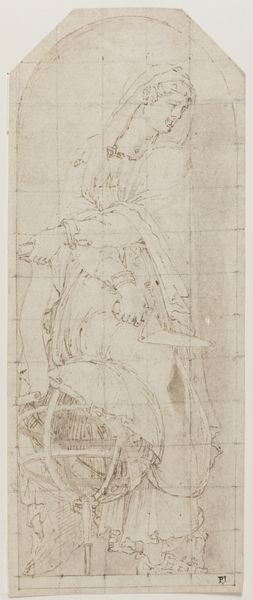
Vrouw met gevouwen handen, daaroverheen een binnenplaats met varkens en kippen 1838 - 1887
0:00
0:00
frederikhendrikweissenbruch
Rijksmuseum
drawing, pencil
#
portrait
#
drawing
#
toned paper
#
light pencil work
#
ink drawing
#
pen sketch
#
pencil sketch
#
landscape
#
personal sketchbook
#
ink drawing experimentation
#
pen-ink sketch
#
pencil
#
sketchbook drawing
#
sketchbook art
#
realism
Dimensions: height 208 mm, width 154 mm
Copyright: Rijks Museum: Open Domain
This drawing, "Vrouw met gevouwen handen, daaroverheen een binnenplaats met varkens en kippen," was sketched by Frederik Hendrik Weissenbruch. Dominating the composition is the recurring motif of hands clasped in prayer, a symbol deeply embedded in the cultural memory of religious devotion. Throughout history, this gesture transcends specific faiths, appearing in various forms from ancient Roman votive offerings to Christian iconography. The clasped hands embody supplication and reverence, a plea for divine intervention or a moment of deep introspection. Consider how the posture appears in medieval devotional paintings, imbued with fervent piety, and then contrast it with its presence in Renaissance portraiture, where it takes on a more secular, dignified air. Over time, the gesture has shed its purely religious connotations, becoming a universal symbol of hope, humility, and inner reflection. The raw sketch invites us to contemplate the emotional intensity projected by the simple act of folding one’s hands. This is a powerful testament to the enduring human need for solace, for connection to something greater than oneself, a primal urge echoed across time and culture.
Comments
No comments
Be the first to comment and join the conversation on the ultimate creative platform.
